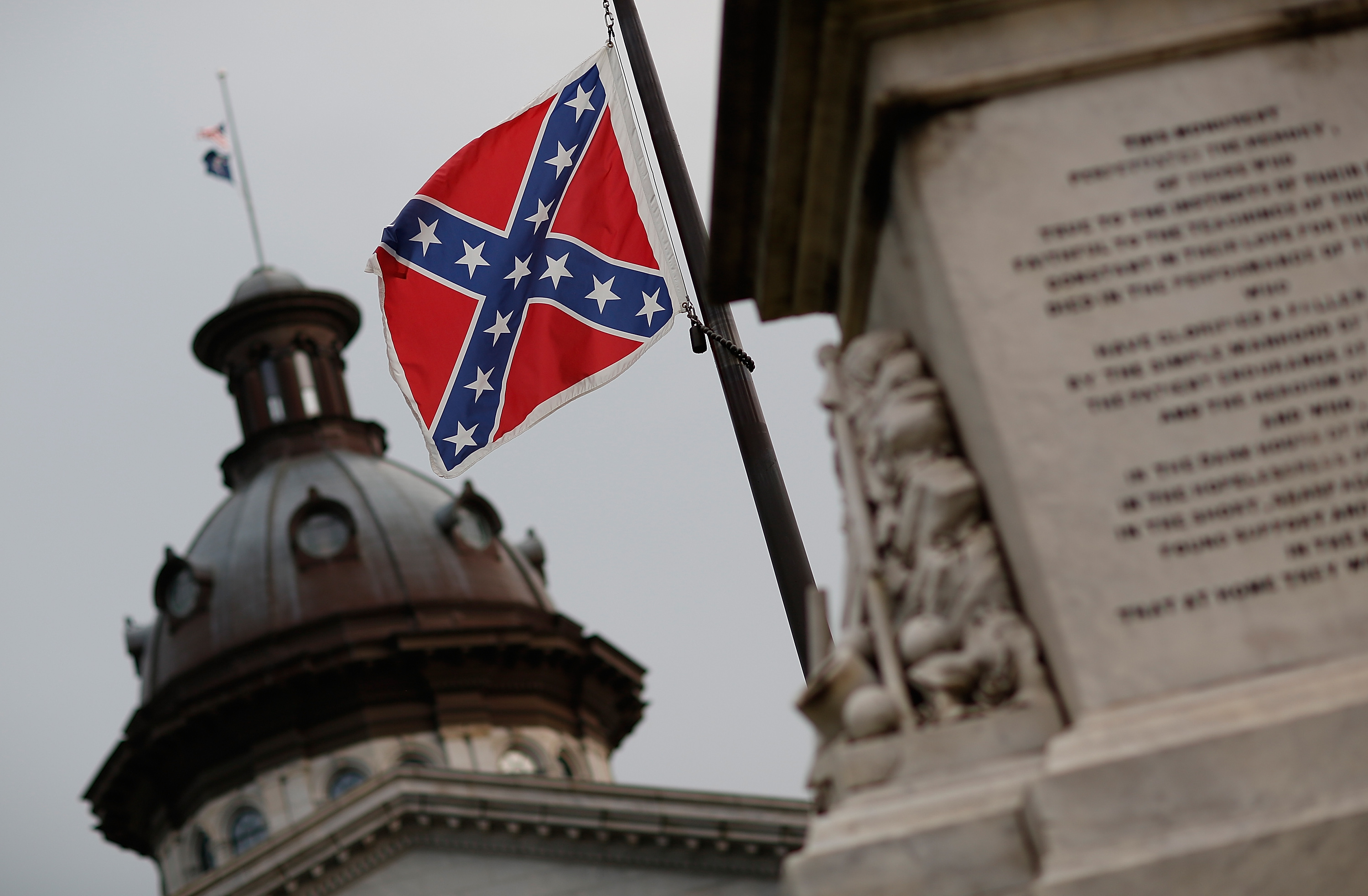War by other means
Americans who cling to the Confederate flag may be in retreat, but the states' rights rebellion goes on


A free daily email with the biggest news stories of the day – and the best features from TheWeek.com
You are now subscribed
Your newsletter sign-up was successful
When Gen. Robert E. Lee surrendered his Confederate flag at Appomattox 150 years ago, the Civil War did not truly end. It smoldered for generations, like a low-grade fever, sometimes flaring in the unimaginable violence of Reconstruction, the Jim Crow era, and the civil rights struggle. It smolders still. In a piece in The Atlantic titled "The Civil War Isn't Over," historian David Blight recently pointed out that the most fundamental conflict between the Union and the rebels was never fully resolved: the balance of power between the federal government and the states. That, at bottom, has been what the Confederate flag has represented to those who held it dear: Defiance. The refusal to surrender, despite a long series of defeats to the "Northern aggressors" and their liberal ideas and values — universal equality, social change, and centralized government as a force for good. The Stars and Bars is the flag of "states' rights," an upraised finger that says: Don't come to our state and tell us what to do.
Another sickening act of violence has shamed politicians into distancing themselves from the rebel flag itself, but the rebellion against federal power will go on. Today, the revolt is not limited to the South; it takes the form of indignant opposition to same-sex marriage, any form of gun control, ObamaCare, federal poverty programs, immigration, climate-change regulation, and Common Core educational standards. In a very real sense, the country is still at war with itself. We're split into red and blue, rural and urban, religious and secular. The electorate, Congress, and the Supreme Court are all utterly polarized. Divided we stand; yet somehow, we stumble forward.
A free daily email with the biggest news stories of the day – and the best features from TheWeek.com
The Week
Escape your echo chamber. Get the facts behind the news, plus analysis from multiple perspectives.

Sign up for The Week's Free Newsletters
From our morning news briefing to a weekly Good News Newsletter, get the best of The Week delivered directly to your inbox.
From our morning news briefing to a weekly Good News Newsletter, get the best of The Week delivered directly to your inbox.
William Falk is editor-in-chief of The Week, and has held that role since the magazine's first issue in 2001. He has previously been a reporter, columnist, and editor at the Gannett Westchester Newspapers and at Newsday, where he was part of two reporting teams that won Pulitzer Prizes.
-
 How Democrats are turning DOJ lemons into partisan lemonade
How Democrats are turning DOJ lemons into partisan lemonadeTODAY’S BIG QUESTION As the Trump administration continues to try — and fail — at indicting its political enemies, Democratic lawmakers have begun seizing the moment for themselves
-
 ICE’s new targets post-Minnesota retreat
ICE’s new targets post-Minnesota retreatIn the Spotlight Several cities are reportedly on ICE’s list for immigration crackdowns
-
 ‘Those rights don’t exist to protect criminals’
‘Those rights don’t exist to protect criminals’Instant Opinion Opinion, comment and editorials of the day
